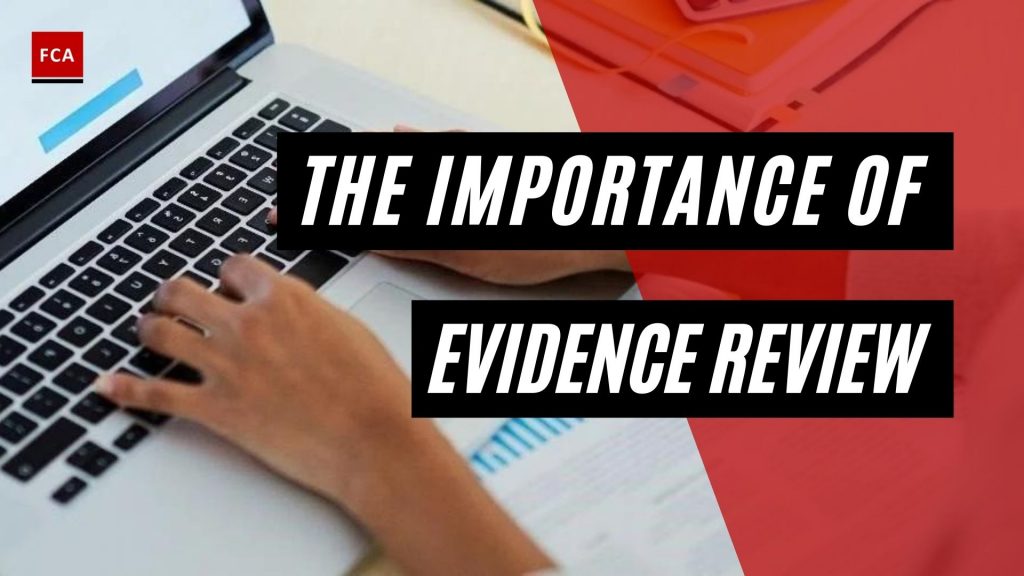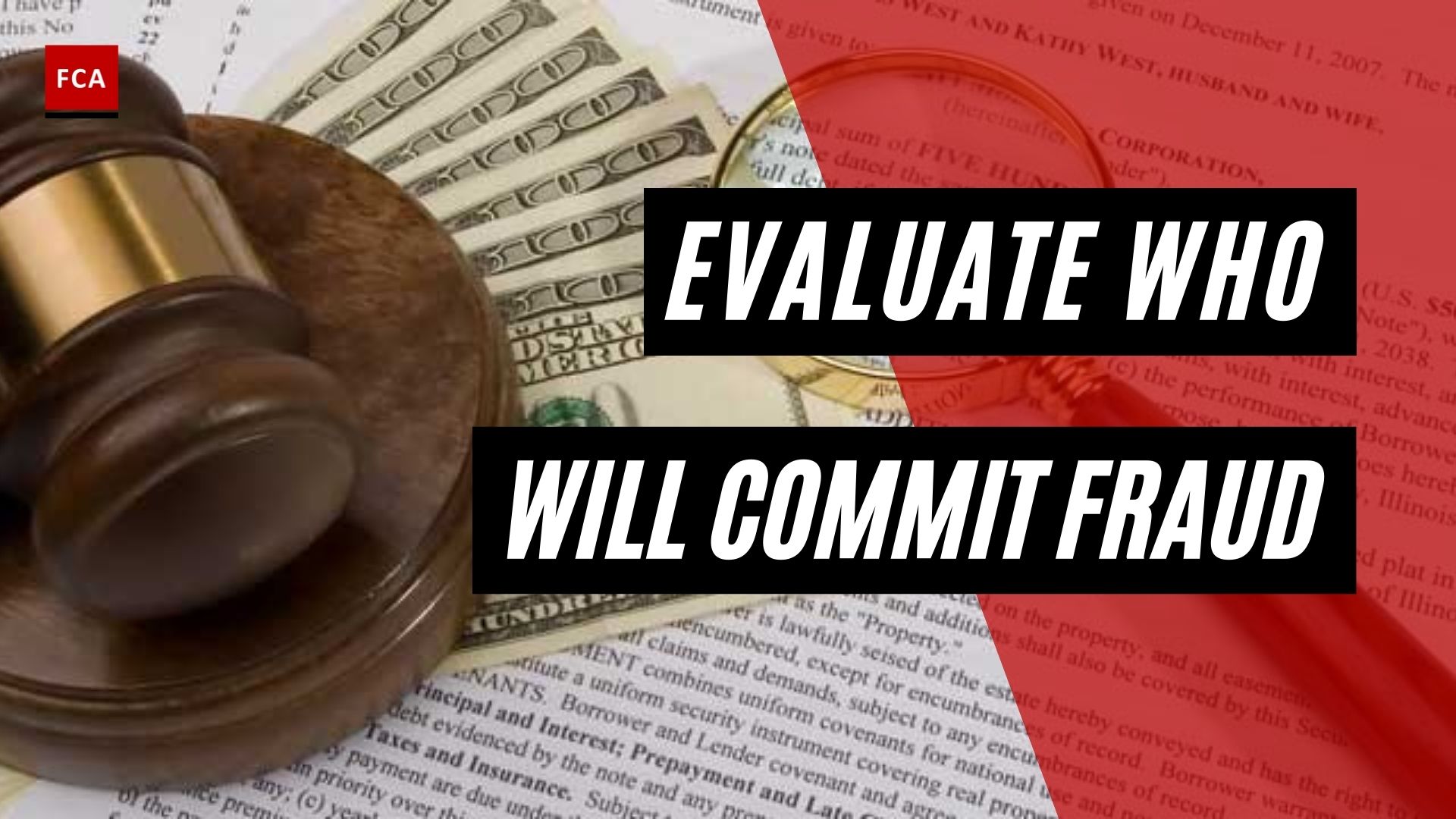The evidence review. One of the most important parts of the investigation process is the official examination and scrutiny of the evidence obtained from different sources during the fraud investigation process.

The Evidence Review
All the evidence gathered during the fraud investigation process by the experts or fraud investigations team is reviewed at appropriate levels. The evidence received from different sources is corroborated with each other to establish the reasonableness of the evidence. Corroboration of evidence may require the need to obtain more in-depth information from the suspect or other sources.
Sufficient relates to the quantity of evidence. Appropriate relates to the quality or relevance and reliability of the evidence. During the evidence review process, it must be ensured that sufficient and appropriate audit evidence is obtained related to fraud activities.
The expert will need to exercise professional judgment on both the quantity and the quality of evidence.
The two characteristics of quantity and the quality are also inter-related.
An investigator may be able to reach a conclusion based on a smaller quantity of high-quality fraud evidence. A larger quantity of lower quality evidence may be required to reach the same conclusion.
Review of evidence is required to be documented appropriately to ensure that all relevant facts are considered apparent from the pieces of evidence.
The Fraud Investigation Documentation
The documentation of a fraud investigation must contain the records that comprise the whole investigation proceedings. The objective of the expert is to prepare the documentation that provides:
- a sufficient and appropriate record of the basis for the expert’s investigation report and
- evidence that the investigation was planned and performed following legal and regulatory requirements.
What Is An Evidence Review?
A systematic and critical review of secondary sources relevant to your program constitutes an evidence review. It assists you in understanding what information is available about the problems you’re attempting to address and your program design: What interventions have been tried previously? In what setting? Were they a success? If so, why or why not?
An evidence review allows you to build on top of programs that have a proven track record of effectiveness, leverage existing resources, and avoid strategies that have already been proven ineffective ultimately saving you time and resources. It can also help you understand what assumptions are reasonable given the existing evidence base, which can help you strengthen your theory of change.
When To Do An Evidence Review?
An evidence review can save a significant amount of time and effort by assisting in building on previous successes and avoiding previous failures. You can base your program on what has worked in similar contexts, or you can avoid interventions that haven’t been effective.
Even if the program includes proven interventions, it is still necessary to ensure that they are well implemented and appropriate for the context:
- It doesn’t matter if the program has a proven track record of effectiveness if you can’t deliver it well. For example, if low-interest loans are made available to women based on an evidence review, but program staff falsify records and pocket the money, the expected impact will not be realized.
- If key conditions differ, a program that was successful elsewhere may fail in this context. A program that built schools in rural Afghanistan, for example, was found to be highly effective in raising student test scores. However, delivering the same program in Peru or India, where most rural communities already have schools, would be unlikely to effect change.
Which Aspects Of The Program Are Likely To Be The Most Important?
An evidence review can reveal which components of an intervention are responsible for its effectiveness. You can concentrate your efforts on ensuring that these components are functioning properly in your program. Assume you are providing tuberculosis treatment. Your evidence review reveals that, while antibiotics are a proven treatment, patients failing to follow the medication regimen is a major issue. Based on this, you may decide to monitor patients’ adherence to treatment or use machine learning to predict which patients are more likely to fail treatment.
Final Thoughts
Before scaling your program, it is usually necessary to conduct an impact evaluation. If conducting an impact evaluation is not possible, such as when responding to an urgent need or making major regulatory changes, an evidence review can be used to determine whether a program should be scaled. Assume you normally work with farmers on livelihood issues, but you need to provide disaster relief after a major flood. You would not have the time to test new programs in this situation, but you could learn from what has worked in similar contexts elsewhere to deliver relief programs at scale.








